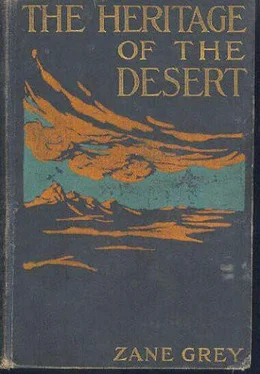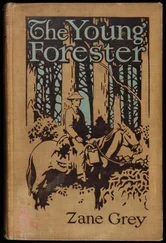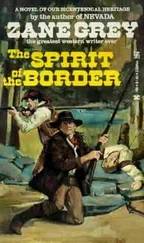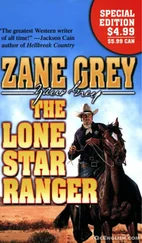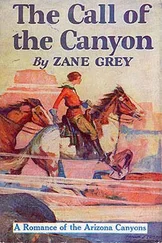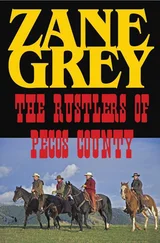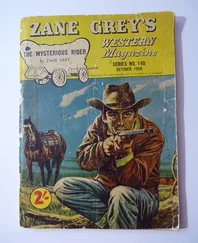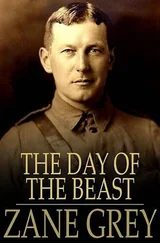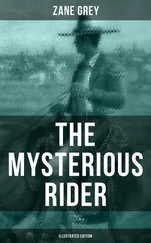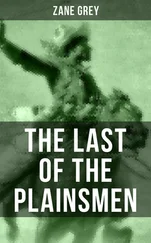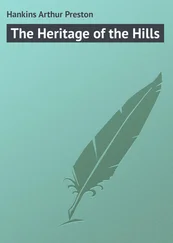Some days they branded one hundred cattle. By October they had August Naab's crudely fashioned cross on thousands of cows and steers. Still the stock kept coming down from the mountain, driven to the valley by cold weather and snow-covered grass. It was well into November before the riders finished at Silver Cup, and then arose a question as to whether it would be advisable to go to Seeping Springs or to the canyons farther west along the slope of Coconina. George favored the former, but Dave overruled him.
"Father's orders," he said." He wants us to ride Seeping Springs last because he'll be with us then, and Snap too. We're going to have trouble over there."
"How's this branding stock going to help the matter any, I'd like to know?" inquired George."We Mormons never needed it."
"Father says we'll all have to come to it. Holderness's stock is branded. Perhaps he's marked a good many steers of ours. We can't tell. But if we have our own branded we'll know what's ours. If he drives our stock we'll know it; if Dene steals, it can be proved that he steals."
"Well, what then? Do you think he'll care for that, or Holderness either?"
"No, only it makes this difference: both things will then be barefaced robbery. We've never been able to prove anything, though we boys know; we don't need any proof. Father gives these men the benefit of a doubt. We've got to stand by him. I know, George, your hand's begun to itch for your gun. So does mine. But we ve orders to obey."
Many gullies and canyons headed up on the slope of Coconina west of Silver Cup, and ran down to open wide on the flat desert. They contained plots of white sage and bunches of rich grass and cold springs. The steers that ranged these ravines were wild as wolves, and in the tangled thickets of juniper and manzanita and jumbles of weathered cliff they were exceedingly difficult to catch.
Well it was that Hare had received his initiation and had become inured to rough, incessant work, for now he came to know the real stuff of which these Mormons were made. No obstacle barred them. They penetrated the gullies to the last step; they rode weathered slopes that were difficult for deer to stick upon; they thrashed the bayonet-guarded manzanita copses; they climbed into labyrinthine fastnesses, penetrating to every nook where a steer could hide. Miles of sliding slope and marble-bottomed streambeds were ascended on foot, for cattle could climb where a horse could not. Climbing was arduous enough, yet the hardest and most perilous toil began when a wild steer was cornered. They roped the animals on moving slopes of weathered stone, and branded them on the edges of precipices.
The days and weeks passed, how many no one counted or cared. The circle of the sun daily lowered over the south end of Coconina; and the black snow-clouds crept down the slopes. Frost whitened the ground at dawn, and held half the day in the shade. Winter was close at the heels of the long autumn.
As for Hare, true to August Naab's assertion, he had lost flesh and suffered, and though the process was heartbreaking in its severity, he hung on till he hardened into a leather lunged, wire-muscled man, capable of keeping pace with his companions.
He began his day with the dawn when he threw off the frost-coated tarpaulin; the icy water brought him a glow of exhilaration; he drank in the spiced cold air, and there was the spring of the deer-hunter in his step as he went down the slope for his horse. He no longer feared that Silvermane would run away. The gray's bell could always be heard near camp in the mornings, and when Hare whistled there came always the answering thump of hobbled feet. When Silvermane saw him striding through the cedars or across the grassy belt of the valley he would neigh his gladness. Hare had come to love Silvermane and talked to him and treated him as if he were human.
When the mustangs were brought into camp the day's work began, the same work as that of yesterday, and yet with endless variety, with ever-changing situations that called for quick wits, steel arms, stout hearts, and unflagging energies. The darkening blue sky and the sun-tipped crags of Vermillion Cliffs were signals to start for camp. They ate like wolves, sat for a while around the camp-fire, a ragged, weary, silent group; and soon lay down, their dark faces in the shadow of the cedars.
In the beginning of this toil-filled time Hare had resolutely set himself to forget Mescal, and he had succeeded at least for a time, when he was so sore and weary that he scarcely thought at all. But she came back to him, and then there was seldom an hour that was not hers. The long months which seemed years since he had seen her, the change in him wrought by labor and peril, the deepening friendship between him and Dave, even the love he bore Silvermane–these, instead of making dim the memory of the dark-eyed girl, only made him tenderer in his thought of her.
Snow drove the riders from the canyon-camp down to Silver Cup, where they found August Naab and Snap, who had ridden in the day before.
"Now you couldn't guess how many cattle are back there in the canyons," said Dave to his father.
"I haven't any idea," answered August, dubiously.
"Five thousand head."
"Dave!" His father's tone was incredulous.
"Yes. You know we haven't been back in there for years. The stock has multiplied rapidly in spite of the lions and wolves. Not only that, but they're safe from the winter, and are not likely to be found by Dene or anybody else."
"How do you make that out?"
"The first cattle we drove in used to come back here to Silver Cup to winter. Then they stopped coming, and we almost forgot them. Well, they've got a trail round under the Saddle, and they go down and winter in the canyon. In summer they head up those rocky gullies, but they can't get up on the mountain. So it isn't likely any one will ever discover them. They are wild as deer and fatter than any stock on the ranges."
"Good! That's the best news I've had in many a day. Now, boys, we'll ride the mountain slope toward Seeping Springs, drive the cattle down, and finish up this branding. Somebody ought to go to White Sage. I'd like to know what's going on, what Holderness is up to, what Dene is doing, if there's any stock being driven to Lund."
"I told you I'd go," said Snap Naab.
"I don't want you to," replied his father."I guess it can wait till spring, then we'll all go in. I might have thought to bring you boys out some clothes and boots. You're pretty ragged. Jack there, especially, looks like a scarecrow. Has he worked as hard as he looks?"
"Father, he never lost a day," replied Dave, warmly, "and you know what riding is in these canyons."
August Naab looked at Hare and laughed. "It'd be funny, wouldn't it, if Holderness tried to slap you now? I always knew you'd do, Jack, and now you're one of us, and you'll have a share with my sons in the cattle."
But the generous promise failed to offset the feeling aroused by the presence of Snap Naab. With the first sight of Snap's sharp face and strange eyes Hare became conscious of an inward heat, which he had felt before, but never as now, when there seemed to be an actual flame within his breast. Yet Snap seemed greatly changed; the red flush, the swollen lines no longer showed in his face; evidently in his absence on the Navajo desert he had had no liquor; he was good-natured, lively, much inclined to joking, and he seemed to have entirely forgotten his animosity toward Hare. It was easy for Hare to see that the man's evil nature was in the ascendancy only when he was under the dominance of drink. But he could not forgive; he could not forget. Mescal's dark, beautiful eyes haunted him. Even now she might be married to this man. Perhaps that was why Snap appeared to be in such cheerful spirits. Suspense added its burdensome insistent question, but he could not bring himself to ask August if the marriage had taken place. For a day he fought to resign himself to the inevitability of the Mormon custom, to forget Mescal, and then he gave up trying. This surrender he felt to be something crucial in his life, though he could not w holly understand it. It was the darkening of his spirit; the death of boyish gentleness; the concluding step from youth into a forced manhood. The desert regeneration had not stopped at turning weak lungs, vitiated blood, and flaccid muscles into a powerful man; it was at work on his mind, his heart, his soul. They answered more and more to the call of some outside, ever-present, fiercely subtle thing.
Читать дальше
